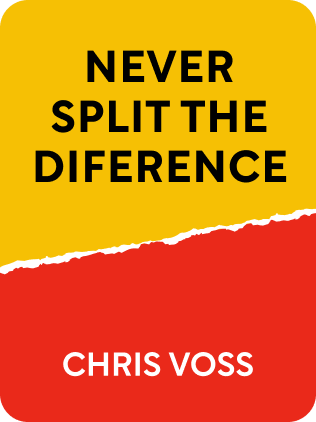

This article is an excerpt from the Shortform book guide to "Never Split the Difference" by Chris Voss and Tahl Raz. Shortform has the world's best summaries and analyses of books you should be reading.
Like this article? Sign up for a free trial here .
What is a calibrated question? Why should you ask calibrated questions in a negotiation?
Calibrated questions are open-ended questions that are structured to probe for more information in a negotiation. They are calibrated to prompt longer answers from your opponent and lead them to a conclusion that you want them to reach.
Keep reading to find out “what is a calibrated question?” and how to put it to work for you.
What Is a Calibrated Question?
People want to feel safe and in control. Autonomy is one of the most basic human emotional needs. As a good negotiator, you need to give your counterpart the illusion of control and lead them to your preferred outcome (while letting them think it’s their idea).
But how do you make them think they’re in the driver’s seat? By asking calibrated, open-ended or “what” questions.
What is a calibrated question example? If you’re confronted with a price that’s too high or an offer that’s unreasonably low, respond with a simple, “How am I supposed to do that?” These straightforward, yet seemingly innocuous questions can be the golden key in a negotiation.
Other good calibrated questions are, “How can we solve this problem?” or “What about this is important to you?” or “What are we really trying to accomplish here?”
Calibrated questions prompt longer answers, which reveal key information. Your counterpart might reveal what they really desire out of a negotiation or what a potential dealbreaker might be. They might also reveal the challenges they face in actually delivering on the terms you’re negotiating.
Calibrated questions put your counterpart to work helping you. You’re putting the other person in a position where they’re providing solutions to your problems. In doing so, you’re leading them along to the conclusion that you want them to reach: all the while, convincing them that your desired solution is their idea. This also helps with the implementation of the decision. Your counterpart will buy into it and commit to it because they’ll think they came up with it.
Staying Out of Their Debt
Crucially, a calibrated question is a debt-free question. Straight requests for information can lead to an unproductive tit-for-tat dynamic, where the other side expects reciprocity. “I gave you something, now you give me something.” Calibrated questions free you from this trap, because they come across as natural, normal, conversational questions: not requests for information.
A straight request for information is something that can either be answered with a simple “yes” or “no” or just a simple, minimal response. Questions like, “Does this apartment have a washer-dryer?” or “When were the windows in this apartment last cleaned?” yield nothing beyond the literal information requested. You’re not putting your counterpart to work for you and you’re setting up the expectation that you’ll pay them back with information of your own. And if your counterpart is good, they’ll ask for information that’s highly valuable to you.

———End of Preview———
Like what you just read? Read the rest of the world's best book summary and analysis of Chris Voss and Tahl Raz's "Never Split the Difference" at Shortform .
Here's what you'll find in our full Never Split the Difference summary :
- Lessons learned from years as an FBI hostage negotiator
- Why negotiation is about emotional appeals, not rational ones
- The 5 methods for tactical empathy, which gets you what you want by focusing on the other person's feelings






